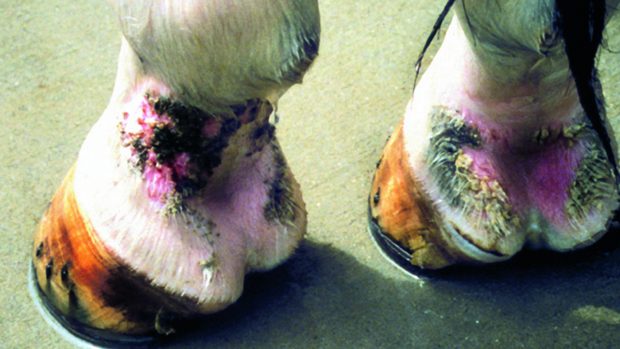Find an equine vet
Read more about winter horsecare
A drop in water availability in the winter months can cause serious blockages in a horse’s vital body processes – and the consequences can be dangerous.
You can reduce the risk of your horse suffering from either impactions or urinary problems by:
Keeping him well watered: reduced water intake can make a horse more susceptible to urinary problems. Studies have shown that horses don’t like drinking freezing cold water, so, if possible, take the chill off during the cold weather.
Keeping tabs on his waste products: look out for how many droppings your horse passes and how often he passes urine and what colour it is, as this will give you an early indication of potential problems.
Considering diet: if a horse has suffered from urinary stones once, consider changing his feed to reduce calcium content and try to acidify the urine. Ask your vet about the best way of doing this.
Monitoring medication: excessive use of drugs like bute is a risk factor for kidney damage. Even in horses that are receiving recommended doses of such medication, toxic concentrations can arise in the blood if a horse is dehydrated as a result of inadequate water intake.
To read the full veterinary article about colic and bladder stones see the current issue of H&H (29 December 2011)
Do you need an equine vet ?
Find out more about winter horsecare




